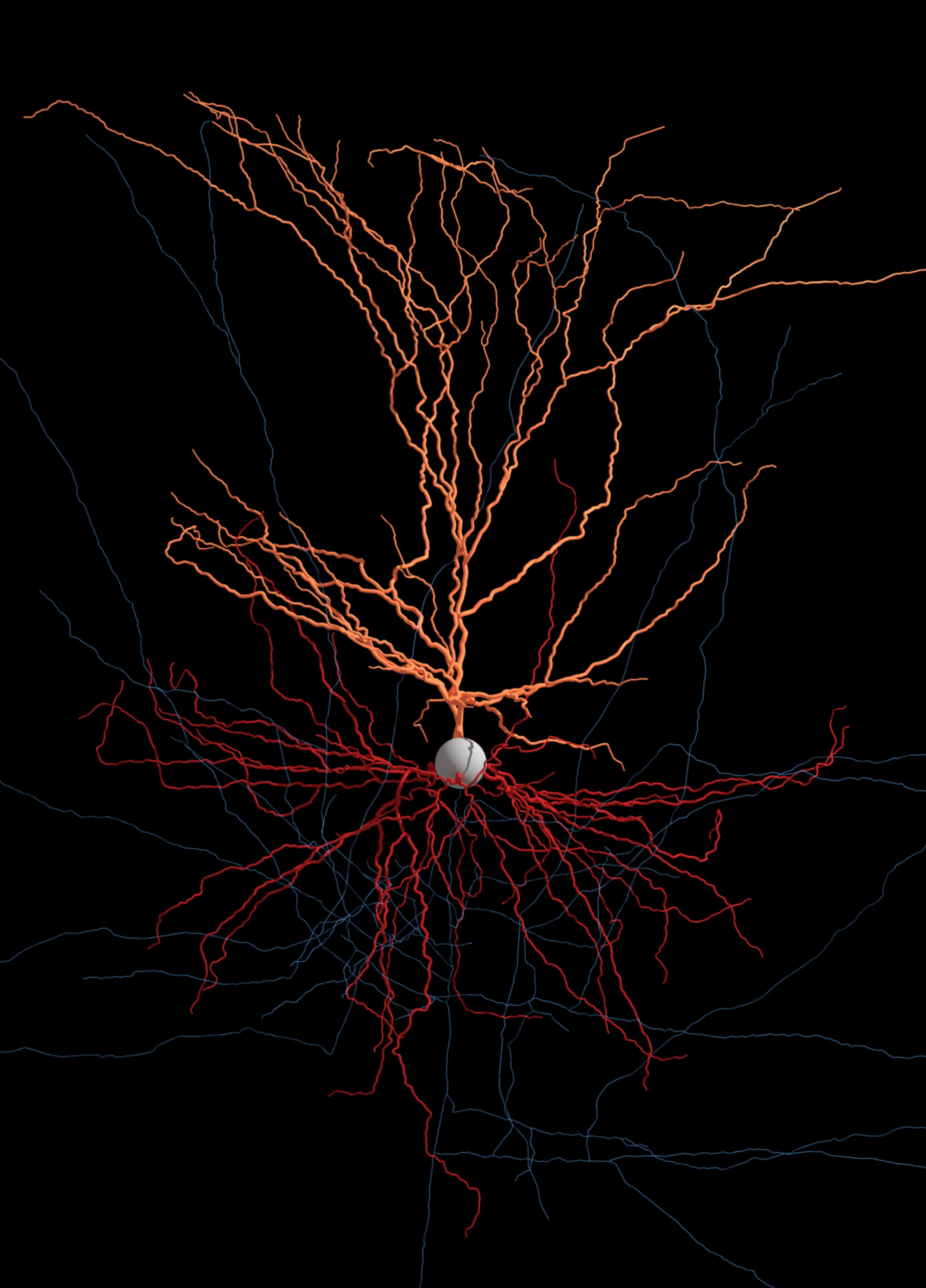
Using brain cells collected from living human beings, the Allen Institute is building a library of 3-D pictures of human nerve cells.
With the click of a mouse, you can look at full reconstructions of cells from a 60-year old woman with epilepsy or a 52-year-old man with a tumor.
The Seattle-based Allen Institute for Brain Science is providing these 3-D maps, as well as information about the cells' electrophysiology and genetic makeup, to anyone with internet access. While also providing breathtaking images, the database shows connections between morphology, genomics and electrophysiology of brain cells at unprecedented levels.
"It's never been done," Michal Stachowiak, a neuroscientist from the Medical School of the University at Buffalo, told Newsweek. "And if you do it, you gain such vast information."
Stachowiak says the database, which was unveiled Wednesday, could eventually answer a central question by connecting genomic data with these pictures: what differences in a person's genetic material can give rise to things like tumors and epilepsy?
The work also led to the discovery that human cells last far longer than mouse cells, as NPR reports.
John Krakauer, a neurologist and neuroscientist at Johns Hopkins University, praises the Allen Institute for providing a tool like this—"a vast library in Alexandria"—to researchers at no cost.
Like Stachowiak, he believes it holds great potential. In understanding the way that neurons are formed—and, in some cases, malformed—the project could help shed light on the causes of diseases like epilepsy and amyotrophic lateral sclerosis.
But, Krakauer says, new tools in neuroscience can sometimes overpromise. And while that's not necessarily what's happening here, Krakauer offers a word of caution.
"When this kind of work gets talked about," Krakauer says, "[people] want to have their cake and eat it. As if the kind of work you need to understand the brain and to cure disease is the same kind of information.
"That's a presumption that masquerades as an obvious fact," Krakauer adds.
Uncommon Knowledge
Newsweek is committed to challenging conventional wisdom and finding connections in the search for common ground.
Newsweek is committed to challenging conventional wisdom and finding connections in the search for common ground.
About the writer
Joseph Frankel is a science and health writer at Newsweek. He has previously worked for The Atlantic and WNYC.





